Filter by
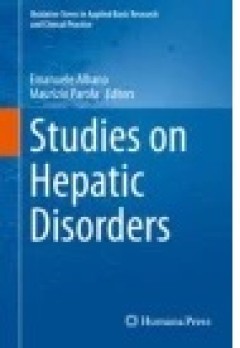
Studies on Hepatic Disorders
This volume examines the current state of free radical biology as it impacts on hepatic disorders. It takes a thorough look at the relationship of oxidative stress in acute and chronic disease and takes into account factors like: redox biomarkers; antioxidant defense and protection; cell signaling, mutations; oxidative damage involving lipids, proteins and nucleic acids; membrane trafficking, i…
- Edition
- -
- ISBN/ISSN
- 978-3-319-15539-5
- Collation
- XXII, 516
- Series Title
- Oxidative Stress in Applied Basic Research and Clinical Practice
- Call Number
- -
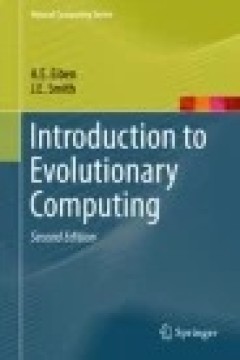
Introduction to Evolutionary Computing
The overall structure of this new edition is three-tier: Part I presents the basics, Part II is concerned with methodological issues, and Part III discusses advanced topics. In the second edition the authors have reorganized the material to focus on problems, how to represent them, and then how to choose and design algorithms for different representations. They also added a chapter on problems,…
- Edition
- -
- ISBN/ISSN
- 978-3-662-44874-8
- Collation
- -
- Series Title
- -
- Call Number
- -
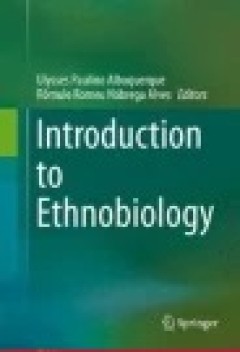
Introduction to Ethnobiology
This textbook provides a basic introduction to ethnobiology with key concepts for beginners. It is also written for those who teach ethnobiology or related fields. The core issues and concepts, as well as approaches and theoretical positions are fully covered.
- Edition
- -
- ISBN/ISSN
- -
- Collation
- -
- Series Title
- -
- Call Number
- -
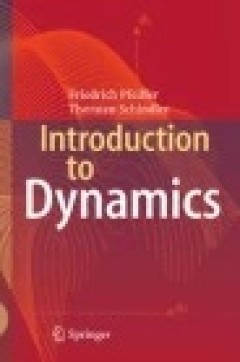
Introduction to Dynamics
This concise textbook for students preferably of a postgraduate level, but also for engineers in practice, contains the basic kinematical and kinetic structures of dynamics together with carefully selected applications. The book is a condensed introduction to the fundamental laws of kinematics and kinetics, on the most important principles of mechanics and presents the equations of motion in th…
- Edition
- -
- ISBN/ISSN
- 978-3-662-46721-3
- Collation
- -
- Series Title
- -
- Call Number
- -

Studies on Experimental Toxicology and Pharmacology
This book focuses on data describing the roles of free radicals and related reactive species, and antioxidants, in the causes and treatments of diseases, examining both clinical and pre-clinical trials, as well as basic research. The book is divided into sub-sections with chapters on toxicological mechanisms, agents that produce toxicity, and special topics including areas such as antioxidant s…
- Edition
- -
- ISBN/ISSN
- 978-3-319-19096-9
- Collation
- XVI, 498
- Series Title
- Oxidative Stress in Applied Basic Research and Clinical Practice
- Call Number
- -

Studies of Intensified Small-scale Processes for Liquid-Liquid Separations in…
The present work focuses on the development of intensified small-scale extraction units for spent nuclear fuel reprocessing using advanced process engineering with combined experimental and modelling methodologies. It discusses a number of novel elements, such as the intensification of spent fuel reprocessing and the use of ionic liquids as green alternatives to organic solvents. The use of ion…
- Edition
- -
- ISBN/ISSN
- 978-3-319-22587-6
- Collation
- XXI, 170
- Series Title
- -
- Call Number
- -
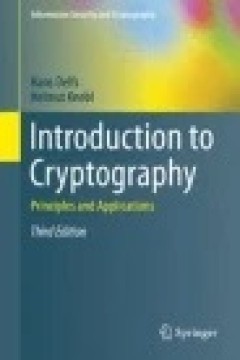
Introduction to Cryptography: Principles and Applications
The first part of this book covers the key concepts of cryptography on an undergraduate level, from encryption and digital signatures to cryptographic protocols. Essential techniques are demonstrated in protocols for key exchange, user identification, electronic elections and digital cash. In the second part, more advanced topics are addressed, such as the bit security of one-way functions and …
- Edition
- -
- ISBN/ISSN
- 978-3-662-47974-2
- Collation
- -
- Series Title
- -
- Call Number
- -
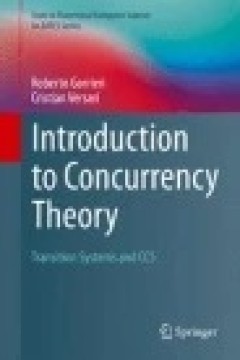
Introduction to Concurrency Theory: Transition Systems and CCS
This book presents the fundamentals of concurrency theory with clarity and rigor. The authors start with the semantic structure, namely labelled transition systems, which provides us with the means and the tools to express processes, to compose them, and to prove properties they enjoy. The rest of the book relies on Milner's Calculus of Communicating Systems, tailored versions of which are used…
- Edition
- -
- ISBN/ISSN
- 978-3-319-21491-7
- Collation
- -
- Series Title
- -
- Call Number
- -

Introduction to Biosensors: From Electric Circuits to Immunosensors
This book equips students with a thorough understanding of various types of sensors and biosensors that can be used for chemical, biological, and biomedical applications, including but not limited to temperature sensors, strain sensor, light sensors, spectrophotometric sensors, pulse oximeter, optical fiber probes, fluorescence sensors, pH sensor, ion-selective electrodes, piezoelectric sensors…
- Edition
- -
- ISBN/ISSN
- 978-3-319-27413-3
- Collation
- -
- Series Title
- -
- Call Number
- -
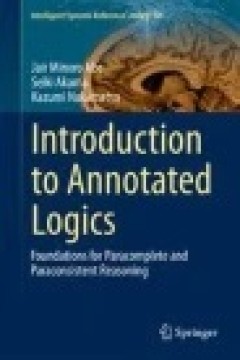
Introduction to Annotated Logics: Foundations for Paracomplete and Paraconsis…
This book is written as an introduction to annotated logics. It provides logical foundations for annotated logics, discusses some interesting applications of these logics and also includes the authors' contributions to annotated logics. The central idea of the book is to show how annotated logic can be applied as a tool to solve problems of technology and of applied science. The book will be of…
- Edition
- -
- ISBN/ISSN
- 978-3-319-17912-4
- Collation
- -
- Series Title
- -
- Call Number
- -
 Computer Science, Information & General Works
Computer Science, Information & General Works  Philosophy & Psychology
Philosophy & Psychology  Religion
Religion  Social Sciences
Social Sciences  Language
Language  Pure Science
Pure Science  Applied Sciences
Applied Sciences  Art & Recreation
Art & Recreation  Literature
Literature  History & Geography
History & Geography